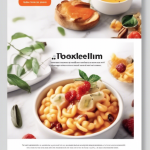Key Retirement Essentials for Financial Security in Your Golden Years
Planning for your retirement is one of the most significant financial steps you’ll take in life. When you transition from full-time work to spending your golden years in leisure, understanding the essentials for financial security is paramount. Here’s a closer look at what you need to secure your future.
Understanding Retirement Income Sources
Before diving into specific strategies, it’s crucial to identify your potential income sources post-retirement. Typically, these include:
- Social Security: This is often a primary income source for many retirees. Understanding how your benefits are calculated and at what age to begin receiving them is vital.
- Pensions: If you have a pension plan from your employer, ensure you know the details about its payout structure.
- Retirement Accounts: 401(k)s, IRAs, and Roth IRAs are common vehicles for retirement savings. The withdrawal strategies you employ will impact your tax liabilities and overall security.
- Investments: Stocks, bonds, and real estate can provide additional income streams. Diversifying your portfolio becomes even more critical as you age.
Budgeting for Retirement Expenses
Your expenses in retirement can differ significantly from your working years. While you may not have commuting costs or work-related expenses, other costs may emerge. It’s wise to create a comprehensive budget that includes:
- Housing Costs: Include property taxes, maintenance, and insurance.
- Healthcare Expenses: Medicare may cover some costs, but additional out-of-pocket expenses can add up quickly.
- Travel and Leisure: Most retirees want to enjoy their free time, so plan for vacations and hobbies.
- Emergency Fund: Set aside a reserve for unplanned expenses.
The Importance of Health Insurance
As you age, healthcare becomes an increasingly significant concern. Understanding your options for health insurance in retirement is critical. Medicare eligibility starts at age 65, but some things to consider include:
- Medicare Parts A and B: These cover hospital services and outpatient care.
- Medicare Advantage Plans: These plans often include vision and dental coverage, providing greater flexibility.
- Long-term Care Insurance: This is worth considering to protect against the high costs of long-term care services.
Creating a Withdrawal Strategy
How you withdraw money from your retirement accounts can significantly affect your longevity and overall financial health. Here are key strategies to consider:
- The 4% Rule: This popular guideline suggests withdrawing 4% of your savings annually. Adjust this based on your lifestyle and expenses.
- Tax-smart Strategies: Consider the tax implications of your withdrawals. Pull from taxable accounts first before tapping into tax-advantaged accounts like IRAs.
- Adjusting Withdrawals: As markets fluctuate, be prepared to adjust your withdrawal amounts to account for gains or losses.
Keep Your Estate Plan Updated
Your estate plan is crucial for passing on your assets. Regularly review it to ensure it reflects your current wishes. Key elements include:
- Will: Ensure your will is updated and clearly outlines how you want your assets distributed.
- Trusts: Consider setting up a trust to manage your assets effectively and avoid probate.
- Power of Attorney: Designate someone to make financial or healthcare decisions in case you become incapacitated.
As you consider these retirement essentials, remember that planning isn’t a one-time event. Regularly review your finances, healthcare options, and overall plans to maintain financial security in your golden years. Being proactive will allow you to enjoy retirement fully, free from the stress of financial uncertainty.
The Importance of Health and Wellness in Retirement Planning
As individuals approach retirement, the focus often shifts to finances and savings. However, health and wellness should be equally prioritized in retirement planning. A healthy lifestyle not only enhances the quality of life during retirement but can also reduce healthcare costs significantly. Planning for health and wellness must be a core component of a comprehensive retirement strategy.
Physical health plays a crucial role in enjoying the golden years. When individuals engage in regular exercise, eat balanced meals, and maintain a healthy weight, they are more likely to remain active and independent later in life. This proactive approach can greatly improve one’s physical mobility, energy levels, and overall outlook on life.
Factors Influencing Health in Retirement
Several factors influence health and wellness, especially during retirement. Understanding these can guide effective planning:
- Nutrition: Eating a well-balanced diet rich in fruits, vegetables, lean proteins, and whole grains is vital. Proper nutrition fuels the body and helps prevent chronic diseases such as diabetes and heart disease.
- Physical Activity: Regular exercise, such as walking, swimming, or yoga, enhances physical health and mental well-being. Aim for at least 150 minutes of moderate aerobic activity each week.
- Social Engagement: Staying socially active combats feelings of loneliness and isolation. Engaging with friends, family, and community groups fosters a sense of belonging and purpose.
- Mental Health: Maintaining cognitive function is crucial. Activities like reading, puzzles, or learning new skills stimulate the brain and promote mental sharpness.
- Regular Checkups: Routine health screenings help detect potential problems early, allowing for timely intervention. These should include dental, vision, and hearing checkups, as well as screenings for high blood pressure, cholesterol, and cancers.
Health and Wellness in Your Retirement Plan
Integrating health and wellness into your retirement planning involves both short-term and long-term strategies. Consider the following:
- Set realistic health goals: Identify what aspects of your health are most important to you and establish achievable goals. For example, a goal could be to walk 10,000 steps daily or consume a certain number of vegetables each week.
- Create an exercise routine: Design a physical activity routine that fits your interests and capabilities. Include a mix of cardiovascular, strength training, and flexibility exercises for a well-rounded approach.
- Budget for healthcare costs: Anticipate healthcare expenses in retirement. Consider enrolling in Medicare and researching supplemental plans to offset costs. Prioritize saving specifically for medical needs.
- Consider long-term care options: Evaluate the possibility of needing long-term care. Research services in your area, like assisted living facilities, and insurance options that may cover such needs.
- Stay informed: Keep up with health recommendations and medical advancements that can affect your retirement health. Consider attending workshops or seminars focused on aging healthily.
The Role of Technology in Health and Wellness
In today’s digital world, technology can significantly enhance health and wellness efforts. Numerous apps and online platforms can assist with tracking physical activity, nutrition, and mental health:
- Fitness Apps: Utilize fitness tracking applications to monitor progress and provide motivation.
- Telemedicine: Leverage telehealth services for regular check-ups without the need to travel, making healthcare more accessible.
- Health Monitoring Devices: Use wearable health technology, such as smartwatches, to keep an eye on vital signs and enhance personal wellness.
Focusing on health and wellness while planning for retirement paves the way for a fulfilling and active lifestyle. By anticipating challenges and crafting a proactive approach, individuals can enjoy their retirement years to the fullest. The investment in health today can yield incredible returns tomorrow, enabling the pursuit of passions and interests that are often made possible by good health.
Conclusion
As you embark on the journey toward retirement, understanding the crucial elements that contribute to a fulfilling and secure life is paramount. Financial security forms the backbone of a successful retirement, offering the freedom to enjoy your golden years without the relentless worry of expenses. It is essential to develop a comprehensive retirement plan that encompasses savings, investments, and prudent spending. The earlier you start saving for retirement, the more financial stability you can attain. Aim to maximize contributions to retirement accounts, like 401(k)s or IRAs, and take advantage of employer matches. Diversifying your investment portfolio can also help mitigate risks and enhance your returns. Having a solid budget in place will make navigating financial responsibilities seamless, allowing you to enjoy the lifestyle you’ve envisioned.
Just as crucial as financial preparedness is maintaining your health and wellness as you transition into retirement. With an aging population, the importance of a strong health strategy cannot be overstated. Staying physically active not only promotes longevity but also helps prevent chronic illnesses that can be costly and limit your enjoyment of life. Incorporate regular exercise into your routine, whether it’s walking, swimming, or joining a fitness class. This practice not only keeps your body fit but also positively impacts your mental health, greatly enhancing your overall quality of life.
Nutrition plays a vital role in this equation as well. A balanced diet rich in fruits, vegetables, whole grains, and lean proteins can boost your immune system and keep chronic diseases at bay. As metabolism slows with age, being mindful of portion sizes and food choices will also support your health goals. Don’t hesitate to consult with a healthcare provider or a nutritionist to tailor a dietary plan that suits your specific needs.
Mental well-being is equally important in retirement planning. Oftentimes, retirees find themselves isolated or disengaged after leaving the workforce. Engaging in activities that stimulate your mind can counteract feelings of loneliness or boredom. Whether it’s joining clubs, volunteering, or pursuing hobbies, creating a diverse social network will provide a sense of belonging and purpose. Seeking out new experiences, like traveling or learning new skills, can keep your mind sharp and instill a renewed zest for life.
Retirement also provides an excellent opportunity for personal growth. The hours once spent on career responsibilities can now be filled with activities that enhance your mind and spirit. Take this time to reflect on your passions and interests that may have taken a back seat during your working years. Whether it’s painting, writing, or even starting a small business, do what you love.
Moreover, staying informed about healthcare options and coverage is a critical component in preserving your financial and physical well-being in retirement. Understanding Medicare, supplemental insurance plans, and long-term care options is essential in forming a safety net for your healthcare needs. The costs associated with medical care can be exorbitant, so make informed decisions early on to minimize future difficulties.
Don’t underestimate the importance of having a strong support system. Building relationships with family and friends not only enriches life, but it also provides a network of support during challenging times. Maintain relationships by regularly reaching out to loved ones, as strong human connections can often provide the motivation needed to stay active, healthy, and engaged.
Navigating retirement successfully requires a well-rounded approach that incorporates both financial and health considerations. Begin with a robust financial strategy to ensure your security and peace of mind. Next, prioritize your health through regular exercise, good nutrition, and mental engagement. By embracing both financial readiness and wellness, you can truly savor the vibrant days of retirement, making the most of every moment. Your golden years should be a time of exploration, fulfillment, and joy, and with the right planning, you can create a life that’s not just lived but truly enjoyed.


